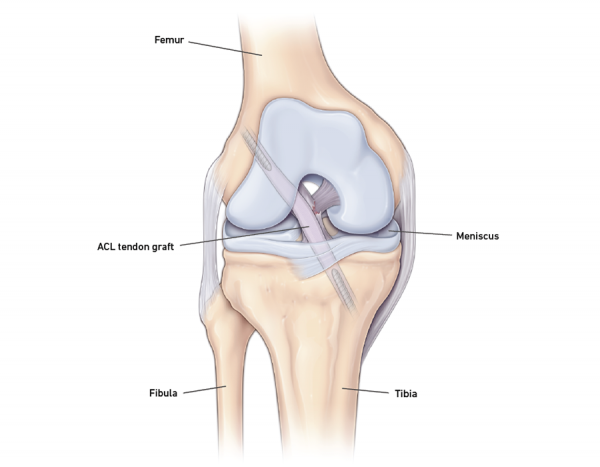Orthopaedic surgery from Aapka Care
Orthopaedic surgery refers to surgical intervention in the case of diseases or injuries concerning the musculoskeletal system. After proper diagnoses and consultation, orthopaedic surgeons treat several conditions that affect the bones, joints, ligaments, nerves and muscles
TKR
ACL

What is TKR surgery?

If your knee is severely damaged by arthritis or injury, it may be hard for you to perform simple activities, such as walking or climbing stairs. You may even begin to feel pain while you are sitting or lying down.If nonsurgical treatments like medications and using walking supports are no longer helpful, you may want to consider total knee replacement surgery. Joint replacement surgery is a safe and effective procedure to relieve pain, correct leg deformity, and help you resume normal activities.
Osteoarthritis
This is an age-related wear and tear type of arthritis. It usually occurs in people 50 years of age and older, but may occur in younger people, too. The cartilage that cushions the bones of the knee softens and wears away. The bones then rub against one another, causing knee pain and stiffness.
Rheumatoid arthritis
This is a disease in which the synovial membrane that surrounds the joint becomes inflamed and thickened. This chronic inflammation can damage the cartilage and eventually cause cartilage loss, pain, and stiffness. Rheumatoid arthritis is the most common form of a group of disorders termed “inflammatory arthritis.”
Posttraumatic arthritis
This can follow a serious knee injury. Fractures of the bones surrounding the knee or tears of the knee ligaments may damage the articular cartilage over time, causing knee pain and limiting knee function.
ACL reconstruction is surgery to replace a torn anterior cruciate (KROO-she-ate) ligament (ACL) — a major ligament in your knee. ACL injuries most commonly occur during sports that involve sudden stops and changes in direction — such as soccer, football, basketball and volleyball.
Ligaments are strong bands of tissue that attach one bone to another bone. During ACL reconstruction, the torn ligament is removed and replaced with a band of tissue that usually connects muscle to bone (tendon).
ACL reconstruction is an outpatient surgery that’s performed by a doctor who specializes in surgical procedures of the bones and joints (orthopedic surgeon).
Why it's done
- Suddenly slowing down and changing direction (cutting)
- Pivoting with your foot firmly planted
- Landing from a jump incorrectly
- Stopping suddenly
- Receiving a direct blow to the knee
ACL reconstruction is generally recommended if:
- You’re an athlete and want to continue in your sport, especially if the sport involves jumping, cutting or pivoting
- More than one ligament is injured
- You have a torn meniscus that requires repair
- The injury is causing your knee to buckle during everyday activities
- You’re young (though other factors, such as activity level and knee instability, are more important than age)
Risks
ACL reconstruction is a surgical procedure. And, as with any surgery, bleeding and infection at the surgical site are potential risks. Other risks associated with ACL reconstruction include:
- Knee pain or stiffness
- Poor healing of the graft
- Graft failure after returning to sport
What is ACL surgery?

Frequently asked questions:
Q. How do ACL injuries happen?
A. ACL injuries often happen when your foot is firmly planted and you suddenly change direction, if a solid force hits your knee while landing from a jump, or if you suddenly slow down while running. High-speed twists and extreme extensions of the knee that can cause ACL injuries are quite common in sports like tennis, soccer, basketball, football, etc., which makes sportsmen and athletes specifically vulnerable to ACL injuries.
Q. What is ACL reconstruction surgery?
A. An ACL reconstruction surgery involves repairing the damaged part of the ACL by replacing it with a soft tissue, which is also called a graft. The surgery promises to restore the stability and strength of the knee joint and is one of the most successful ways of treating total tears of the anterior cruciate ligament.
Q. How successful is the procedure generally?
A. Research has concluded that more than 90% of surgeries result in successful outcomes like
- Decreased pain
- Upgraded function
- Independent Ambulation
Q. Can I delay ACL reconstruction surgery?
A. ACL reconstruction surgery should be done as soon as possible. Delaying the procedure could cause further damage and degeneration of the knee joint and could lead to stiffness, which can make the surgery more complicated.
